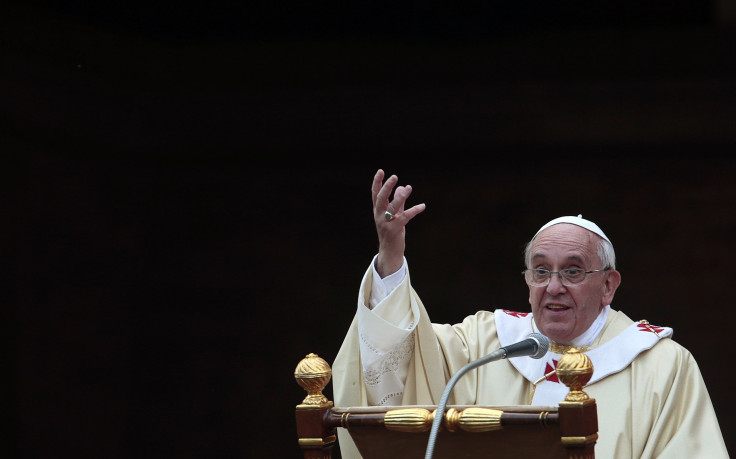
In a speech before representatives from the United Nations, including UN Secretary General Ban Ki-moon, Pope Francis urged governments to reject what he has called “the economy of exclusion” and pointed to “the legitimate redistribution of economic benefits by the State” as an important tool in equitable economic development. The pontiff has garnered renown as the “people’s pope” -- as Rolling Stone branded him in January -- for his denunciations of indifference toward the poor or otherwise vulnerable as well as of systems of governance that lead to economic and social exclusion.
In his first major document composed as pope, Francis took aim at “trickle-down theories which assume that economic growth, encouraged by a free market, will inevitably succeed in bringing about greater justice and inclusiveness in the world,” calling them “crude and naïve.” But his remarks on Thursday, in which he also called for “indispensable cooperation between the private sector and civil society” were perhaps the pope’s most explicit advocacy of a particular political program to date.
As a bishop, Francis said he sympathized with -- but never fully subscribed to -- liberation theology, a Vatican-censured movement which saw clergymen joining the ranks of leftist guerrillas across Latin America in the 1970s and 1980s. But as the Nation noted after his inauguration last March, one of his first acts was to invite the Peruvian priest and professor Gustavo Gutiérrez, whose 1968 paper “Toward a Theology of Liberation” helped spark the movement after it was presented at a conference of Latin American bishops that year.
© 2025 Latin Times. All rights reserved. Do not reproduce without permission.





